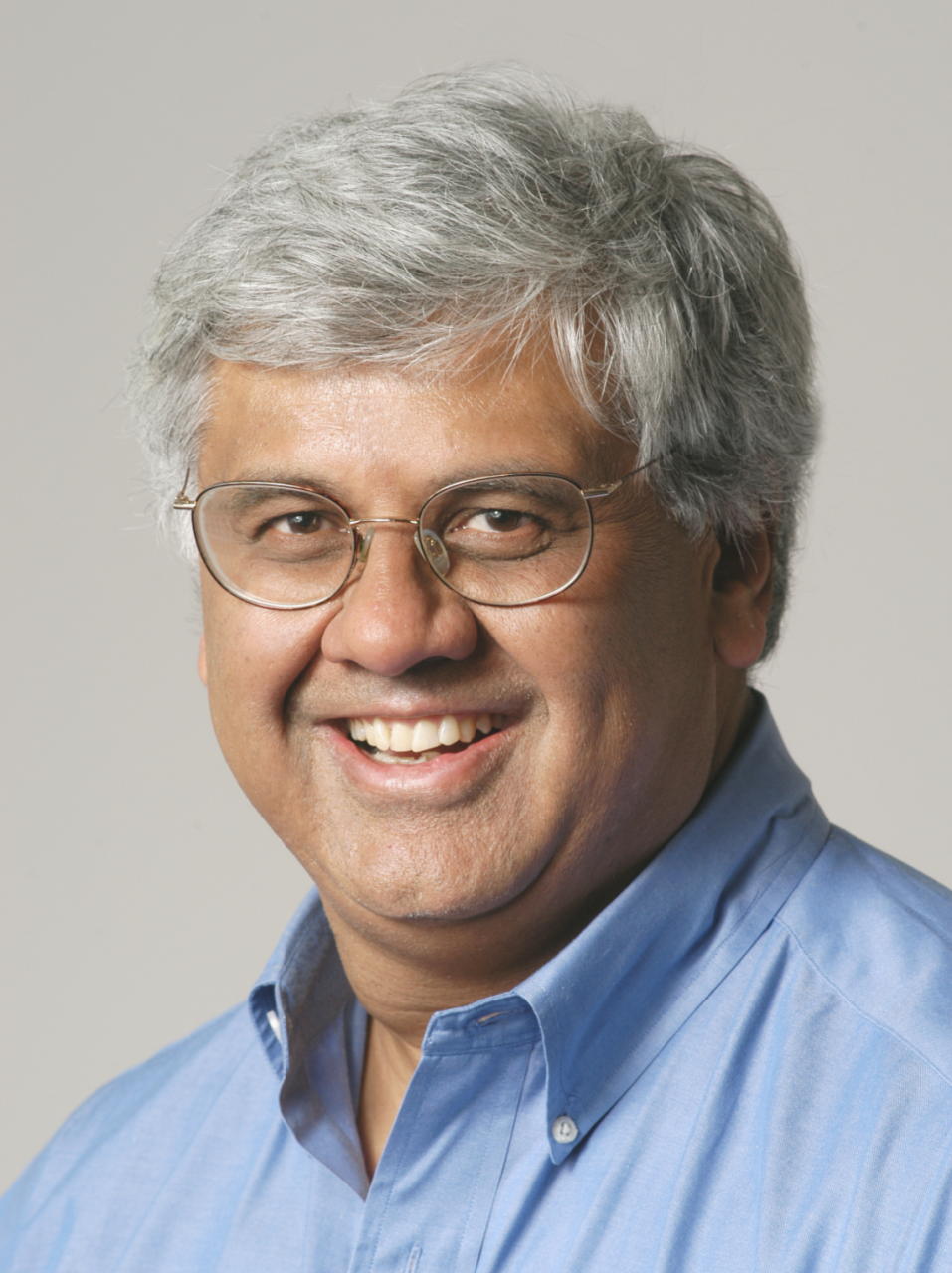VU Lablet Project Talk
BIOS
 Shankar Sastry received his B.Tech. from the Indian Institute of Technology, Bombay, 1977, a M.S. in EECS, M.A. in Mathematics and Ph.D. in EECS from UC Berkeley, 1979, 1980, and 1981 respectively. He holds faculty appointments in the Departments of Electrical Engineering and Computer Sciences, Bioengineering, and Mechanical Engineering, and served as dean of the College of Engineering from 2007 to 2018. He was formerly the Director of CITRIS (Center for Information Technology Research in the Interest of Society) and the Banatao Institute @ CITRIS Berkeley. He served as chair of the EECS department from January, 2001 through June 2004. In 2000, he served as Director of the Information Technology Office at DARPA. From 1996-1999, he was the Director of the Electronics Research Laboratory at Berkeley, an organized research unit on the Berkeley campus conducting research in computer sciences and all aspects of electrical engineering. He is the NEC Distinguished Professor of Electrical Engineering and Computer Sciences and holds faculty appointments in the Departments of Bioengineering, EECS and Mechanical Engineering. Prior to joining the EECS faculty in 1983 he was a professor at MIT.
Shankar Sastry received his B.Tech. from the Indian Institute of Technology, Bombay, 1977, a M.S. in EECS, M.A. in Mathematics and Ph.D. in EECS from UC Berkeley, 1979, 1980, and 1981 respectively. He holds faculty appointments in the Departments of Electrical Engineering and Computer Sciences, Bioengineering, and Mechanical Engineering, and served as dean of the College of Engineering from 2007 to 2018. He was formerly the Director of CITRIS (Center for Information Technology Research in the Interest of Society) and the Banatao Institute @ CITRIS Berkeley. He served as chair of the EECS department from January, 2001 through June 2004. In 2000, he served as Director of the Information Technology Office at DARPA. From 1996-1999, he was the Director of the Electronics Research Laboratory at Berkeley, an organized research unit on the Berkeley campus conducting research in computer sciences and all aspects of electrical engineering. He is the NEC Distinguished Professor of Electrical Engineering and Computer Sciences and holds faculty appointments in the Departments of Bioengineering, EECS and Mechanical Engineering. Prior to joining the EECS faculty in 1983 he was a professor at MIT.
 Lillian (Lily) Ratliff is an Assistant Professor in the Department of Electrical Engineering at the University of Washington. She also holds an Adjunct Professor position in the Allen School of Computer Science and Engineering at UW. Prior to joining UW she was a postdoctoral researcher in EECS at UC Berkeley (2015-2016) where she also obtained her PhD (2015) under the advisement of Shankar Sastry. She holds a MS (UNLV 2010) and BS (UNLV 2008) in Electrical Engineering as well as a BS (UNLV 2008) in Mathematics. Lillian's research interests lie at the intersection of game theory, learning, and optimization. She draws on theory from these areas to develop analysis tools for studying algorithmic competition, cooperation and collusion and synthesis tools for designing algorithms with performance guarantees. In addition, she is interested in developing new theoretical models of human decision-making in consideration of behavioral factors in societal-scale systems (e.g., intelligent infrastructure, platform-based markets and e-commerce, etc.) and computational schemes to shape the outcome of competitive interactions. Lillian is the recipient of an NSF Graduate Research Fellowship (2009), NSF CISE Research Initiation Initiative award (2017), and an NSF CAREER award (2019), and the ONR Young Investigator award (2020). Lillian was also an invited speaker at the NAE China-America Frontiers of Engineering Symposium (2019) and recently awarded the Dhanani Endowed Faculty Fellowship (2020).
Lillian (Lily) Ratliff is an Assistant Professor in the Department of Electrical Engineering at the University of Washington. She also holds an Adjunct Professor position in the Allen School of Computer Science and Engineering at UW. Prior to joining UW she was a postdoctoral researcher in EECS at UC Berkeley (2015-2016) where she also obtained her PhD (2015) under the advisement of Shankar Sastry. She holds a MS (UNLV 2010) and BS (UNLV 2008) in Electrical Engineering as well as a BS (UNLV 2008) in Mathematics. Lillian's research interests lie at the intersection of game theory, learning, and optimization. She draws on theory from these areas to develop analysis tools for studying algorithmic competition, cooperation and collusion and synthesis tools for designing algorithms with performance guarantees. In addition, she is interested in developing new theoretical models of human decision-making in consideration of behavioral factors in societal-scale systems (e.g., intelligent infrastructure, platform-based markets and e-commerce, etc.) and computational schemes to shape the outcome of competitive interactions. Lillian is the recipient of an NSF Graduate Research Fellowship (2009), NSF CISE Research Initiation Initiative award (2017), and an NSF CAREER award (2019), and the ONR Young Investigator award (2020). Lillian was also an invited speaker at the NAE China-America Frontiers of Engineering Symposium (2019) and recently awarded the Dhanani Endowed Faculty Fellowship (2020).
 Eric Mazumdar is an Assistant Professor in Computing and Mathematical Sciences and Economics at Caltech. He obtained his Ph.D in Electrical Engineering and Computer Science at UC Berkeley, co-advised by Michael Jordan and Shankar Sastry. Eric Mazumdar's research lies at the intersection of machine learning and economics. He is broadly interested in developing the tools and understanding necessary to confidently deploy machine learning algorithms into societal-scale systems. This requires understanding the theoretical underpinnings of learning algorithms in uncertain, dynamic environments where they must interact with other strategic agents, humans, and algorithms. Practically, he applies his work to problems in intelligent infrastructure, online markets, e-commerce, and the delivery of healthcare. Mazumdar holds degrees in electrical engineering and computer science from both UC Berkeley (PhD '21) and MIT (BS '15).
Eric Mazumdar is an Assistant Professor in Computing and Mathematical Sciences and Economics at Caltech. He obtained his Ph.D in Electrical Engineering and Computer Science at UC Berkeley, co-advised by Michael Jordan and Shankar Sastry. Eric Mazumdar's research lies at the intersection of machine learning and economics. He is broadly interested in developing the tools and understanding necessary to confidently deploy machine learning algorithms into societal-scale systems. This requires understanding the theoretical underpinnings of learning algorithms in uncertain, dynamic environments where they must interact with other strategic agents, humans, and algorithms. Practically, he applies his work to problems in intelligent infrastructure, online markets, e-commerce, and the delivery of healthcare. Mazumdar holds degrees in electrical engineering and computer science from both UC Berkeley (PhD '21) and MIT (BS '15).